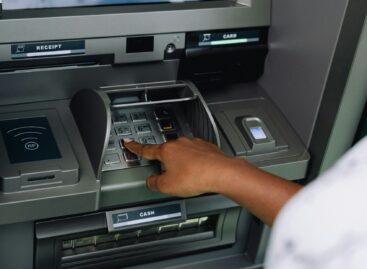Self-service checkouts have had a mixed reception in Hungary
According to a joint survey by the Pénzcentrum and the University of Debrecen, the vast majority of Hungarian customers have already used self-service cash registers, and many prefer them over traditional cash registers. 94.2% of the 10,358 people who took part in the research had used the self-service cash registers at least once, while only 5.8% stated that they had never tried them. Respondents explained the spread and popularity of self-service cash registers primarily in terms of speed, while others take a more critical position, including due to the lack of personal interaction.
Speed and flexibility are among the main advantages of self-service checkouts

According to the results of the research, the main advantage of using self-service checkouts is speeding up and simplifying shopping. 79.8% of the respondents believe that these systems are easily available in their shopping environment and are particularly suitable for carrying out purchases with a smaller basket value. Those who regularly use these systems highlighted the greater flexibility in addition to speed. Self-service checkouts allow customers to pay at their own pace without being rushed by a cashier.
In addition, 35.2% of the respondents stated that they are doing well using the self-service cash registers, while 55.1% generally do well, although they sometimes encounter minor problems. In addition to quick and easy shopping, another often-mentioned advantage is less queuing: at self-service checkouts, the queue is usually shorter, so the shopping process can be faster.
Criticism and challenges: not everyone likes it
Although the spread of self-service checkouts is becoming more widespread, not all customers are satisfied with them. According to 40.9% of those who took part in the research, there are already too many such systems and they feel that they are displacing traditional cash registers. This opinion is especially common among those over 40 and those with lower education. They cite the lack of personal interaction and technical difficulties as the main problems. For the older age group, for example, managing cash registers often causes frustration, and many people miss personal contact with cashiers.
Another common criticism is that when using self-service checkouts, customers are “doing the work of cashiers” without receiving any discounts or benefits. 27.3% of the respondents fully agreed with this statement, while 38.8% considered it partially true. Among these groups, lower income and older customers are mainly represented.
Related news
Breaking: You can withdraw more cash for free with Revolut cards
🎧 Hallgasd a cikket: Lejátszás Szünet Folytatás Leállítás Nyelv: Auto…
Read more >Related news
Nestlé to sell remaining ice-cream assets but commits to Froneri venture
🎧 Hallgasd a cikket: Lejátszás Szünet Folytatás Leállítás Nyelv: Auto…
Read more >Lidl guarantees fairer prices for cocoa farmers
🎧 Hallgasd a cikket: Lejátszás Szünet Folytatás Leállítás Nyelv: Auto…
Read more >40 secure jobs, sustainable solutions – new BURGER KING® in Csepel
🎧 Hallgasd a cikket: Lejátszás Szünet Folytatás Leállítás Nyelv: Auto…
Read more >








